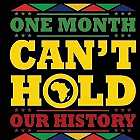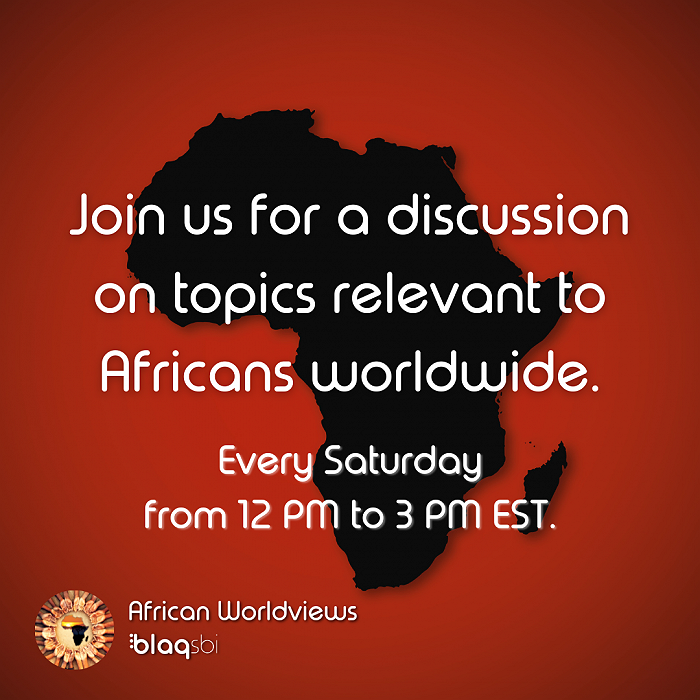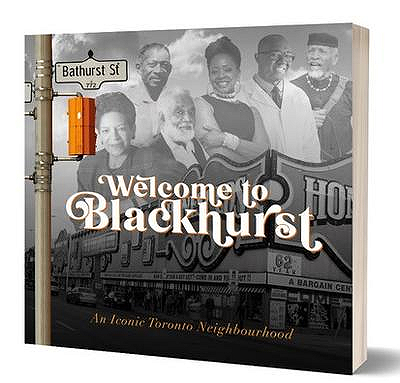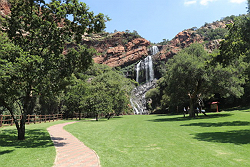Mvemba Nzinga (Afonso I) c. 1461 to 1543
Mvemba Nzinga (circa 1461-1543), also known as Afonso I, ruled as Mani Kongo (king) of Kongo from 1506-43.
He came to power soon after the arrival of the first Europeans in 1482.
Having adopted Christianity, Afonso I tried to strengthen his dynasty and his country by modernizing and proselytizing the Kongo.
Because Portugal was more interested in exploitation than in cooperation, his efforts failed.
Mvemba Nzinga was the son of Nzinga Nkuwu, the king of the Kongo, who received representatives of the Portuguese navigator Diogo Cão who landed at the mouth of the Zaire River in 1482.
Cão was the first European to visit the Zaire area.
Hoping to benefit from the power and wealth of the Portuguese, Nzinga Nkuwu converted to Christianity and was baptized with the name of the reigning Portuguese king, João.
At the same time, in July 1491, Nzinga Nkuwu's son, Mvemba Nzinga was baptized as Afonso, the name of the Portuguese prince who was heir to the throne.
Mani Kongo Nzinga Nkuwu quickly returned to his traditional beliefs.
One of the causes for this was his attachment to the institution of polygamy, which, as king, he needed to gain wealth, increase his prestige, and form alliances with other political leaders.
Also, when, earlier, Nzinga had burned traditional religious symbols, he had incurred the anger of his people, who had begun looking to his unconverted son Mpanzu a Nzinga as a replacement.
Because he was governor of the province of Nsundi, lying across what is now the Zaire River, mid-way between modern Kinshasa and Matadi, Mvemba was the heir apparent to the office of Mani Kongo.
In his capital, Mbanza-Nsundi, he welcomed those priests and Portuguese agents who had been obliged to leave the Mani Kongo's capital in about 1495 after the monarch had renounced Christianity.
He also had traditional objects of art, considered by the Portuguese to be diabolical, burned.
Such destruction, however, greatly displeased many people in his realm.
On Nzinga Nkuwu's death in 1506, Mvemba Nzinga fought with his brother, Mpanzu, the leader of the conservatives, who hoped to take power.
Victorious in the struggle, the Christian Mvemba Nzinga and his partisans attributed their success to divine intervention.
In truth, Mvemba won because of aid from Portuguese weapons.
This battle was a landmark in the history of relations between the kingdom of the Kongo and Europe.
As king, Mvemba Nzinga worked zealously to convert his kingdom to Christianity.
Portugal, which had supported his candidacy against Mpanzu, answered his requests for missionaries.
Mvemba, or Afonso I, also sought to modernize his kingdom.
Perhaps his most notable efforts were in education.
By 1516 he had founded schools, for both boys and girls, at Mbanza Kongo, (renamed San Salvador).
He also sent young boys of noble birth to Portugal to study.
One of his sons Dom Henrique studied in Portugal, and was consecrated a bishop in 1518.
Mani Kongo Mvemba Nzinga also called on Portuguese masons, carpenters, and joiners to renovate royal architecture.
He further solicited the skills of European chemists, doctors, schoolmasters, jurists, and specialists in court protocol.
But Mvemba Nzinga's efforts quickly ran into a series of unexpected difficulties.
The Portuguese technicians, once in the Kongo, worked indifferently, and did not follow the instructions of the country's king.
The efforts of Christian missionaries did not benefit the kingdom as much as Mvemba Nzinga had hoped.
And, finally, European ships' captains traded along the Zaire River without regard to the Kongo's commercial laws.
Mvemba Nzinga asked the king of Portugal, Manuel I (reigned 1495-1521), to send an emissary with special jurisdiction over the Portuguese nationals in the Kongo.
In consequence, in 1512, Manuel codified a program of Christianization and acculturation for the Kongo and sent out an ambassador with a "regimento" (a regulation or systematic statement).
The "regimento," however, failed in its purpose for several reasons.
First the plans for cultural change could not be achieved because they were on such a large scale and because there were comparatively few artisans and missionaries to carry them out.
Second, most Portuguese were interested mainly in economic gain.
Finally there was a fundamental ambiguity in Portuguese policy toward Africa.
Portugal wished both to aid the Kongo but at the same time to exploit it economically.
Although claiming to treat the Kongo as an equal, Portugal attempted to limit the Kongo's sovereignty on several levels.
Commercially, it refused to restrict Portuguese traders who circumvented the Kongo's laws; in the judicial domain, it tolerated illegal activities of the Portuguese living in the Kongo; in the religious sphere, it sought to abolish traditional customs.
The Portuguese were not satisfied with gaining commercial and religious dominance in the Kongo.
They also wished to exploit the precious minerals, which they erroneously believed to be abundant, as a result of impressions given by the unlucky envoys of Mvemba Nzinga.
Both Manuel, in 1520, and his successor, Joao III (reigned 1521-57), in 1530, had received gifts of several silver manacles from Mvemba Nzinga.
The Portuguese consequently believed the Kongo was filled with mines. (Even as much as a century later, the Portuguese were to wage a disastrous war against a king of the Kongo who refused to surrender his mines to them.)
During the reign of Mvemba Nzinga, the slave trade began-ruining the interior of the country, not so much in demographic terms as on an institutional level.
The Portuguese sent to help educate and modernize the Kongo, chose instead to take part in this very profitable activity.
The Portuguese of Sao Tome island, who received a trade monopoly for Central Africa from Portugal scorned any attempts on the part of the Mani Kongo to halt or even regulate the slave trade within his kingdom.
Portuguese adventurers in the Kongo had close links to Sao Tome.
On Easter Sunday 1539, these adventurers even tried to kill the Mani Kongo as he attended mass.
The king barely escaped.
In about 1843, Mvemba Nzinga died, after a long reign of almost 40 years.
He is remembered as an inspired builder, and a sincere ruler with a great vision.
He was, nevertheless, naive, lacking the decisiveness and political cunning needed to outmaneuver the Portuguese.
Some of his actions led to the eventual downfall and ruin of his land.
By seizing office through the force of arms, he inaugurated the violent struggles for succession which were to divide the Kongo during the second half of the 17th century.
By revealing the existence of mines in his lands, he aroused Portuguese cupidity, with disastrous results.
Finally, in his numerous campaigns to abolish traditional religion, he destroyed many examples of Kongolese art.
He should have never converted or trusted Europeans!
Show Previous 1 Comment























